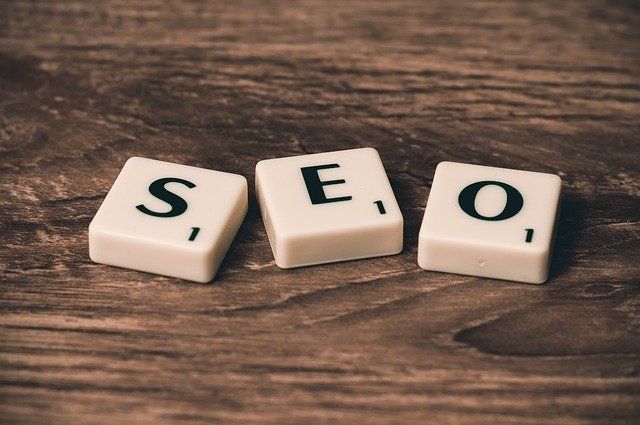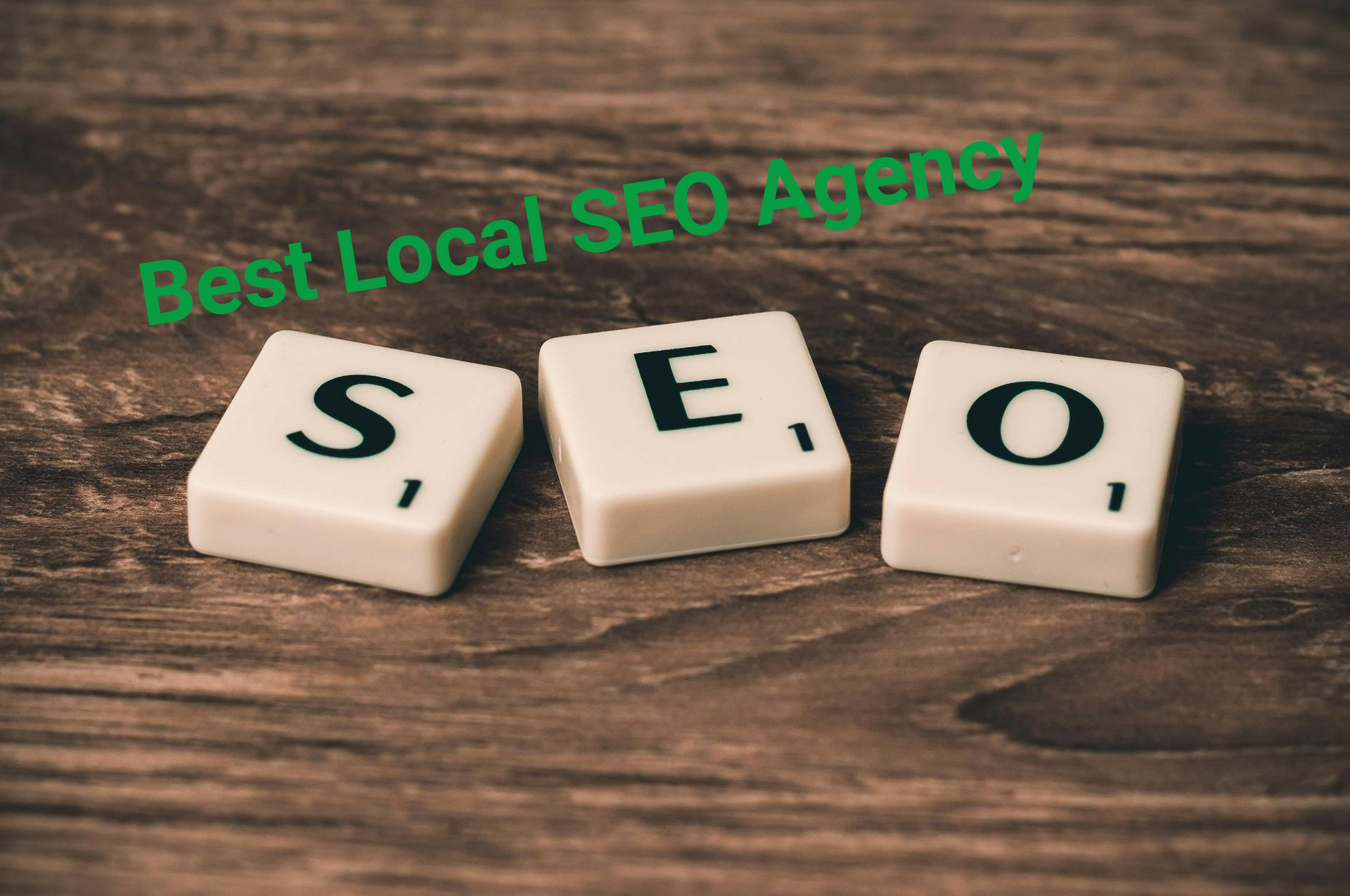Top 6 Most Important SEO Tags for Ranking Success

How well does your website rank on Google? Are you on page one and getting the traffic you need, or is your site stuck on page 100 on search results?
If you’re looking to get to the top of Google Search, it starts with your site’s content, and more specifically, your site’s SEO.
SEO stands for search engine optimization.The term refers to how best you can make your site visible to Google.
Over
53% of internet search traffic comes through organic or non-advertised links. Websites that have been optimized for search engines bring in three times more visitors than adverts, and the first five spots on Google gain 67.6% of all clicks.
This article looks at the essential ingredients of SEO. We explain the use of SEO tags and examine how editing your title tags and meta-tags can help boost your rankings. You'll learn how to add alt tags to your images to make them more accessible to Google and the difference between anchor tags and canonical tags.
So read on to see how some simple tweaking using SEO can bring major results to your website!
What Are SEO Tags?
Google actively uses SEO tags when ranking results. Here’s how.
The goal of Google Search is to provide accurate results to billions of queries. When someone searches 'pet food,' Google Search sorts through its index to best match those keywords.
When Google crawls your site, it examines the HTML code and tries to figure out what the content is about. SEO tags tell Google if the page is showing text or an image, for example. And the text within tags, such as links, gives clues as to the nature of the site.
If Google sees the words 'Pet Food in Atlanta' in several tags, then there's a good chance that page relates to the pet food search. This tells Google to show your site in those search results.
Why Does My Site Need SEO Tags?
SEO covers a range of areas like keyword analysis, backlinking and localized content. However, SEO tags focus on individual pages to make sure they perform well when Google crawls and indexes them.
Do you really need these tags on your website? How effective are they, and what if you ignore them? Let's go back to the pet food scenario.
Imagine if your pet business website didn't mention that phrase once. It has 'dog food' and 'cat treats,' but not the main keywords 'pet food'. More importantly, it ignores the phrase within your title tag, headings and images. These are key tags Google uses to decide how to index the page.
So why should Google put your site above your competitor who does use this keyphrase?
They shouldn't, and they don't.
Google rewards site owners who take the time to research and include the right keywords in their tags and content. And for those that don't bother to do it right, they'll never get on page one.
What SEO Tags Do I Need to Use?
Before we share the six essential SEO tags, you need to remember one important fact:
Google doesn't list your website. It lists the pages on your website.
That means every page needs editing, not just your homepage. And yes, it's hard work, but the rewards are huge.
Yet you don't need to do everything yourself. Hiring the right
online marketing company can help ease the burden.
So what tags do you need to include and optimize to rank higher in the search engine results pages?
- Title tags
- Meta tags
- Header tags
- Image alt tags
- Link and anchor tags
- Canonical tags
In the next section, we break down what each tag means, how it works, and why it's essential.
And if you've never seen HTML code don't worry. We promise to keep things simple.
1. Title Tags
Open your website in your favorite browser.
See the text in the tab at the top of the screen? That's the page's title. And it's the most important SEO tag.
The HTML code looks like:
<title>YOUR WEBSITE TITLE HERE</title>
The text between the opening and closing tags is what Google not only ranks but uses as links within their results.
To show this in action, open another tab and search a keyphrase related to your business. See the result links? You'll find the same text in the title tag when you visit that link.
Now you understand the importance of the title tag. Your visitors will make the decision to visit your website depending on this text. And Google uses it to summarize your content.
The Rules of Title Tags
What are the rules to create the perfect title tags? If the tag doesn't contain the visitor's search phrase they're less likely to click. If the tag is too long, Google cuts the letters off. Too short, and it doesn't explain anything.
So many things to consider. But the rule of thumb is to tell users what your page is about and make it marketable so they want to visit it.
You can read more about title SEO tag creation
here. The guide covers keyword weights, upper versus lower case, and bracketing.
2. Meta Descriptions
Did you notice a few lines of text beneath Google's result links? This description provides a brief summary of that link. But do you know how Google creates that information, or that you can influence it?
The code Google uses as the basis of their result descriptions is the <meta name="description" content="DESCRIPTION HERE" /> tag.
It sits below the <title/> tag, and the content attribute should be between 50 to 160 characters in length. Any more than this and Google cuts it off.
So what makes a good meta description?
Think of them as a way to advertise your products or services. And like any advertisement, they should inform, persuade and remind. Here's an example:
<meta name="description" content="Buy dog foods at the lowest prices online. Shop a wide selection of top nutritional foods for dogs and pets from top-selling brands. Easy 90-day returns!"/>
Make sure to include your targeted keywords for that page and variations, but don't overuse them. Also, don't duplicate your meta tags: treat each page uniquely. And don't include double quotation marks as Google will cut off your content early.
A final tip is to know when not to create a meta description.
For long-tail or larger keyword phrases, let Google create the description for you. They will pull in the content surrounding the user's search which often produces more natural results. However, Facebook still uses the description tag. So if you target their platform, be sure to include them.
3. Header Tags
A header or heading tag looks like <h1>HEADING HERE</h1>. These tags are vital to SEO. Each page should have one H1 tag and can have multiple H2 and H3 tags.
Google hunts these tags out as they present a short summary of the content of the page.
Or they should. Because if your headings have nothing to do with the text below them, Google will penalize you. Severely.
Use headings to break your pages into bite-sized chunks.That's great for Google to crawl but will also assist your visitors as they skim to the parts they want to read.
The perfect example is this article. It uses a mix of <h1>,<h2>, and <h3> to order content by importance. It also makes the text easy to read and highlights important information.
4. Image Alt Tags
The browser shows a visual tag when you move your mouse over an image if it contains a title and alt attribute.
<img src="pet-food.jpg"
alt="Pet food for hungry hounds"
title="Pet food for hungry hounds" />
Notice the parts in bold. Both are required for Google and the web browser. And for visually impaired users, they're essential for screen readers.
Every image on your site needs an alt tag. It takes seconds to add but can really help your SEO, especially when you include relative keywords.
Don't overdo it, though. Keep your content relative. And one final tip is to make sure your images are named after your keywords, as in the example above.
5. Link/Anchor Tags
A link looks like <a href="page.html">visit page</a>. But what makes a good SEO anchor tag?
An important tip is to never make the words 'click here' a link!
Make sure your links contain relative text that relates to the information on the other side. Using keywords is especially important. But don't overdo it.
Your anchor link text should be between 2-5 words in length. It needs to entice real visitors to click, not just Google. And never cover your content with links. Spread them evenly. A good rule of thumb is 1-2 links max per 500 words. Try to link to pages on your site if possible, so you get the good ‘link juice’ for SEO purposes.
6. Canonical Tags
Unfortunately, every website contains duplicate content, which can confuse search engines.
www.yoursite.com is the same yet different to
yoursite.com.
A canonical tag tells Google 'this is the main source of my web page' to avoid this confusion.
<link rel="canonical" href="https://www.yoursite.com" />
That page acts as the anchor to everything. Google will crawl it first and foremost. So be careful when you edit it!
Tag-In the SEO Game Changers
Now you understand what SEO tags are and why they're vital. But you might be wondering how you'll have time or the skill to add them to your own company website?
You don't need to do everything yourself. Hiring the right online marketing company can help ease the burden.
ClickReady Marketing is one of Atlanta's top
SEO agencies that specializes in small to mid-sized businesses. We are a recognized Google partner, and that award is only given to an SEO company with the highest skills in paid and display search.
Our
SEO Game Changers digital marketing service is designed to give your business an edge in Google search. From a site audit to tag optimization, we can help your business appear for local, national, or global search. So take advantage of our trained specialists to help boost your online traffic and convert them into paying customers. Get a quick quote by contacting us today! (404) 923-0015





